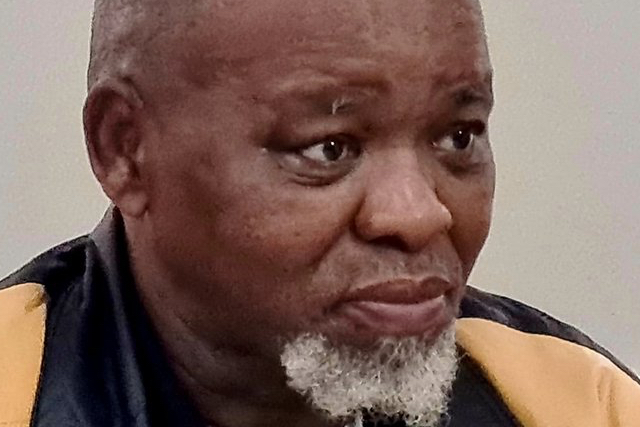Cape Town – Mineral Resources Minister Gwede Mantashe has advised fellow ministers to avoid unethical conduct and stick to earning only their official salaries, warning that corruption could land them in trouble like Police Minister Senzo Mchunu.
Speaking at David Mabuza’s memorial, Mantashe joked that any wrongdoing would lead them to face Mchunu, who oversees the police.
“As a cadre, you must be ethical. You mustn’t take money that doesn’t belong to you. Your money is called a salary.
“If you take money that is not your salary, you are not ethical, you will be like this minister who is in trouble now, Minister [Senzo] Mchunu. You’ll have to meet Mchunu. Once you take money that is not your salary, put it in your pockets, you’ll meet Mchunu,” the minister said.
[WATCH] “As a cadre, you must be ethical. You mustn’t take money that doesn’t belong to you. Your money is called a salary.” – ANC national chairperson Gwede Mantashe. #Newzroom405 pic.twitter.com/ZoV2Erei5S
— Newzroom Afrika (@Newzroom405) July 10, 2025
His remarks come amid serious allegations by KwaZulu-Natal Police Commissioner Nhlanhla Mkhwanazi, who accused Mchunu and other senior SAPS figures of being part of a criminal syndicate backed by drug cartels and business interests.
Mkhwanazi also claimed Mchunu was interfering politically in police affairs.
Mchunu initially denied links to businessman Brown Mogotsi but has now admitted knowing him “as a comrade,” contradicting earlier statements to Parliament.
The scandal has triggered a national outcry, prompting President Cyril Ramaphosa to schedule a public address.
PRESIDENT RAMAPHOSA TO BRIEF THE NATION ON NATIONAL SECURITY MATTERS
President @CyrilRamaphosa will on Sunday, 13 July 2025, address the nation on developments arising from a public statement by KwaZulu-Natal Police Commissioner Lt-Gen Nhlanhla Mkhwanazi that details allegations…
— The Presidency 🇿🇦 (@PresidencyZA) July 10, 2025
Separately, Mantashe has faced his own criticism over nepotism after his son was controversially appointed to a SETA board — a decision that was later reversed


